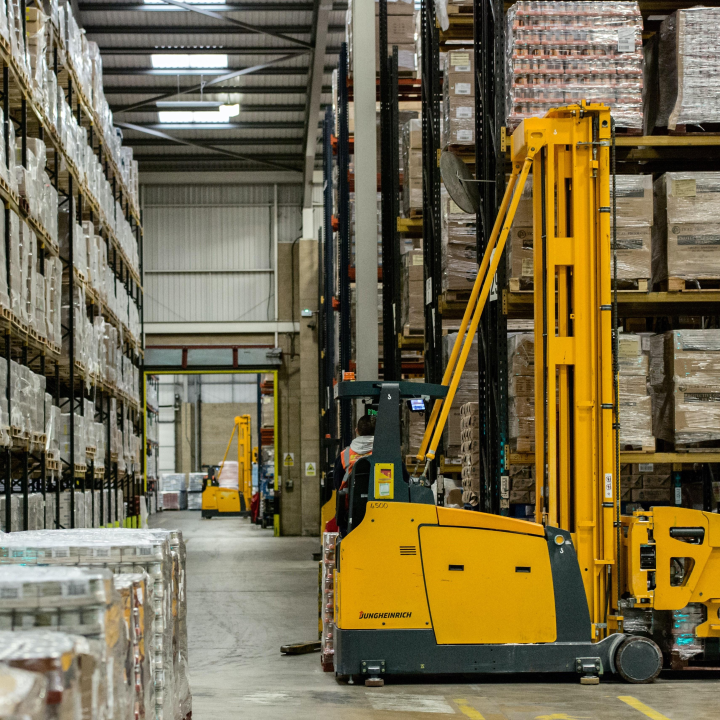The Internet of Things (IoT) is becoming more and more present in our everyday lives. Smartphones for example can be used to control connected household appliances, such as ovens, fridges and televisions. Increasingly, the potential of IoT to revolutionise business operations is attracting attention.
One Spanish firm, Internet of Things SL, successfully applied for funding through Eureka's Network projects programme to build and test an IoT platform that can be used by a variety of sectors to better manage operations. The platform combines different connectivity technologies (e.g. RFID, GPS, SATCOM and Bluetooth) with the security of blockchain technology. Although often associated with the bitcoin cryptocurrency, blockchain (a kind of database that is validated by a wider community rather than a central authority) has huge potential for securing other applications, like IoT platforms.
“Businesses operate many types of devices using different IT systems, communication protocols and connectivity technologies,” notes Fernando Rufo, CEO at Internet of Things SL and coordinator of the Asset Data Trace (ADT) Network project. “A key challenge is connecting all these assets to provide a seamless view of all data moving across an enterprise.”
Completely connected
This is the ultimate objective of the initiative, and the project participants are developing an IoT software platform that allows any type of device to connect over any type of connectivity, enabling businesses to view all assets, vehicles and people in real-time. “Most of our competitors are focused on one technology, like RFID or GPS,” says Rufo. “We don’t mind what technology we use, partly because things move forward so quickly. This is why our platform is about combining different types of technologies. Customers will be able to select what is best suited to them in terms of cost and efficiency, and every new functionality we add gives potential end users a new way to improve operational productivity.”
In a warehouse setting this could mean using RFID tags to track products being loaded onto trucks, as well as sensors installed in vehicles to analyse speed and other parameters. “In one trial we put RFID tags on a warehouse floor to act as beacons, and readers onto forklifts,” Rufo explains. “As the forklift moves, signals sent to receptors allow us to trace the movements of pallets. This not only diminishes losses and issues related to misplaced products, but also increases the visibility of inventory. At the end we were able to map a 100,000 square metre warehouse, helping the end user see how operations could be made more efficient.”
Vehicle dealerships and delivery firms spread over similarly large areas might also use a combination of technologies to keep track of their staff and assets.
Other potential customers are companies required to transport perishable goods across borders. Real-time tracking is vital for ensuring products like meat and frozen fish maintain the right temperature throughout their journey in compliance with strict food safety rules.
“The key is that all these tracking technologies can be integrated in our platform,” says Rufo. “And with blockchain, the data collected can then be processed securely. In these trials, we could show that some end users achieve efficiencies of 30%, and reduce human error by around 20%, making a return on their investment in less than six months.”
Creating a business network
“We have incorporated all technologies and completed the blockchain part,” says Rufo. “The next stage will be to create 'vertical' platforms that are targeted at specific sectors.” Rufo is confident that the market opportunity is huge. Forbes has forecast that the global IoT sector will reach 450 billion US dollars in 2020. Blockchain-enabled IoT solutions could carve out a lucrative niche within this increasingly competitive sector. Internet of Things SL’s core target markets of Spain, the UK, Germany, Switzerland and Austria represent a spend potential of 54 billion US dollars alone, Rufo claims.
“We are currently working with Vodafone, which is interested in giving customers IoT solutions,” he says. “We have also been working with companies that help businesses to digitalise. These companies might not be experts in supply chain IoT, and so this is where we come in.” Rufo also stresses the importance of taking client feedback into account. At each step, customers give us information about what solutions would work best for them,” he says. “We then integrate this feedback into our roadmap, because we want to offer targeted solutions.”
Looking to the future, Internet of Things SL is projecting strong revenue growth, supported by a pipeline of 42 million euro of potential new business. The company predicts they will reach annual revenues of 21.7 million euro within five years. “The ADT project has also given us the possibility to grow our team, which now stands at 15,” he says. “And the fact that we are working with some of the newest technologies means we are an attractive proposition for people.”
Partners: Internet of Things SL (Spain), G&L Group (Argentina)
Project ID: 12666 ADT (Network projects)
